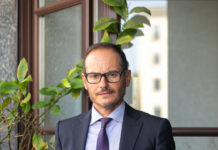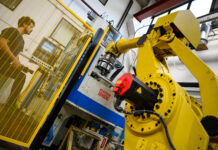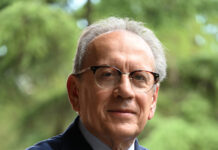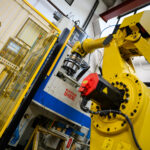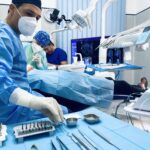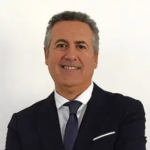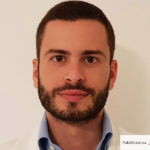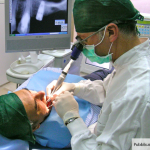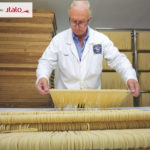This is one of the new frontiers in regenerative medicine, earning Dr. Marco Cosimi, a proctologic surgeon from Rome, the title of “Proctology Excellence of the Year 2025” in the Healthcare & Pharma category of the Le Fonti Awards. This prestigious award honors excellence in the fields of professional services, consulting, and business. The XV edition was held on March 13 at Palazzo Mezzanotte in Piazza Affari, Milan.


Dr. Cosimi, what are the current clinical indications for using mesenchymal stem cells in proctology?
Regenerative therapy using autologous mesenchymal stem cells now offers a definitive and painless therapeutic solution for treating significant and uncomfortable proctological conditions. Thanks to their anti-inflammatory and pain-relieving properties, mesenchymal stem cells can rapidly eliminate pain and local inflammation even in complex cases such as anal fissures. At the same time, they repair damaged tissue without leaving scars — only biologically healthy cells, collagen, and elastin from the patient remain. This also reduces potential complications commonly associated with surgical interventions. These stem cells are harvested from the patient themself and have shown remarkable results in the treatment of painful and inflammatory disorders such as anal fissures, anal fistulas, and sacrococcygeal fistulas (https://metodocosimi.it/fistole/). Their reparative action is also mediated through signaling via microvesicles known as exosomes, which release bioactive factors into the affected tissue and bloodstream. This triggers a biological healing response in the body and stimulates local replication of additional mesenchymal stem cells that further aid in repairing the damaged area.
Does the outpatient procedure cause pain for the patient?
The harvesting of mesenchymal stem cells is a simple and painless procedure. A modest liposuction of approximately 50–60 ml of subcutaneous fat tissue is performed through a tiny skin incision, without the need for stitches. The fat is aspirated with a microcannula, targeting the microscopic stem cells present among the larger fat cells, which are destroyed and removed using sterile techniques. Only the liquid stem cell suspension — not the adipocytes (fat cells) — is injected into the lesion that requires healing. This technique is truly minimally invasive, allowing the proctologist to effectively treat even large, deep, and chronic anal fissures, anal fistulas, or sacrococcygeal fistulas in a single session, without scarring or postoperative pain. Mesenchymal stem cells have a natural biological anti-inflammatory and analgesic action, and the procedure is performed under local anesthesia, with no need for hospitalization or even a day hospital.

How do mesenchymal stem cells work once injected?
Once injected into the lesion, mesenchymal stem cells begin working immediately to reduce inflammation and relieve pain, rapidly promoting tissue healing. This is particularly useful in painful anal conditions such as anal fissures. Recent research has highlighted the importance of exosomes — microscopic particles that interact with tissues, delivering key bioactive segments of DNA and RNA. These are crucial in recognizing specific features of the local biological and anatomical damage and in stimulating healing and cellular homeostasis. Exosomes produced by stem cells can modulate local inflammation and pain while promoting tissue repair and enhancing the efficiency of cellular regeneration. By optimizing the natural effects of these exosomes — and amplifying their action using thermal and photonic stimulation directly applied to the stem cells after harvesting — regenerative proctology now holds the potential to revolutionize treatment, enabling faster healing of many proctologic disorders with highly targeted and less invasive approaches.
What is the future of Regenerative Proctology?
Thanks to advances in medical and scientific research, these techniques have become a cornerstone of both regenerative medicine and proctology, delivering rapid and satisfactory results to patients. Mesenchymal stem cells and their exosomes now offer a stable and pain-free outpatient treatment path, even for complex and painful proctological diseases, eliminating the need for invasive surgery and avoiding surgical complications. In conclusion, the regenerative approach using autologous mesenchymal stem cells and exosomes represents a major breakthrough in modern proctology. These effective, non-invasive treatments allow patients to quickly resume daily activities while ensuring high-quality care, particularly for those suffering from anal fissures, anal or perianal fistulas, and sacrococcygeal fistulas.
For more information: metodocosimi.it · youtube.com/@metodocosimi · info@metodocosimi.it











































